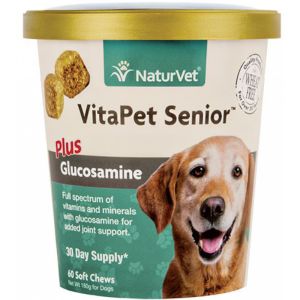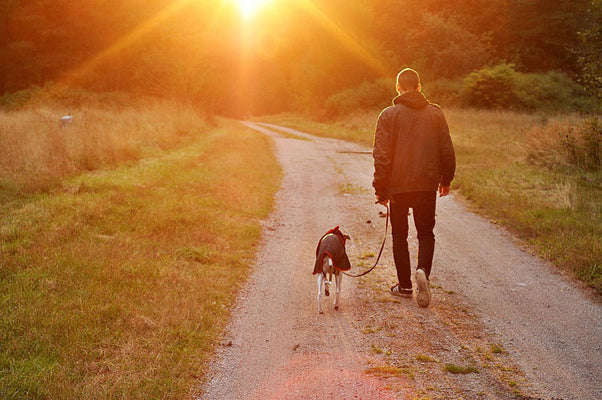As your beloved canine friend gets older, its nutritional needs will change together its physical aging, too. Find out what you can do in terms of diet to keep your senior happy and healthy.
How old is old?
First things first: how would you know when your dog has crossed the threshold from mature adult to its ‘senior’ status? While ageing is a gradual process, keep your eyes peeled for visible age-related changes which might signal that your dog needs a more specific and special diet.
Such changes might be in the form of deteriorating health, with signs such as poorer skin and coat texture, reduced muscle mass, lower energy levels, arthritis, intestinal issues, obesity, teeth problems and slower recovery from illnesses. Depending on breed, most dogs will began showing these signs of ageing at around 7 – 12 years old. However, do note that as smaller breeds tend to live longer, they also experience age-related changes later in life.
Less is More

As dogs grow older, they will experience slower metabolic rates, much like us humans! Similarly, they also tend to be less active and expend less energy as opposed to more active dogs in the prime of their adulthood. As such, it is common to see changes in body composition – with senior dogs being more at risk for obesity as they put on body fat easily, even with little calorie consumption.
To maintain your pet’s health and avoid obesity, it is better to give Senior several small meals throughout the day, rather than one or two heavy meals. Not only can they enjoy the excitement of mealtimes more often, but this will also help to prevent overeating, as well as bloat or digestion problems that may arise with heavier meals.
Along these lines of keeping food light, opt for a diet with a lower calorie density and formulas often marked as ‘Light’ or ‘Senior’. Do ensure, though, that protein levels remain high even in these lighter formulas which can be meat-based such as lamb or chicken, as a consistent level of easily digestible protein is crucial in helping to maintain muscle mass.
Power Boost
Besides ensuring that your senior dog remains at a healthy weight, other key objectives in feeding an older dog would be to slow down or prevent the development of chronic disease, as well as combat any signs of disease or illness that may already be present.
For example, many senior dogs may have already experienced a deterioration of their skin and coats. In such cases, you can opt for fish-based formulas, which are naturally rich in Omega-3 fatty acids that promote a healthy skin and coat and restore glow and luster. For an added boost, other crucial components that you should look out for on food labels would be antioxidants such as Vitamin C and Beta-Carotene, which not only help to give the immune system a boost, but also help to slow down the ageing process both inside and out.
Just like older people, your senior dog might also suffer joint pains from time to time, as bones get weaker with ageing. Chondroitin or glucosamine supplements or chews can help maintain healthy joints, improving their flexibility and even alleviating pain that your senior pet might experience during exercise.
Keeping It Soft
Many senior dogs also experience dental problems, which include the loss of teeth and possibly even gum disease. Besides taking your dog often to a vet for dental check-ups, giving it soft dental chews can be great in helping to combat plaque and tartar build-up.
Moreover, as your dog gets older, its teeth may increase in sensitivity, which makes chewing dry kibble a difficult and even uncomfortable task. As such, switching to a soft food will serve as a far more comfortable and palatable alternative, with soft food even aiding digestion as it is more easily broken down.
Even though your senior dog might no longer be as active as in their prime or adorable as in their puppyhood, it has probably been with you through thick and thin, forming a special bond with you in the process. Besides taking care of its basic needs such as diet, it is also important to treasure your older furry friend’s companionship. For as the adage goes, “Old truly is Gold”.
